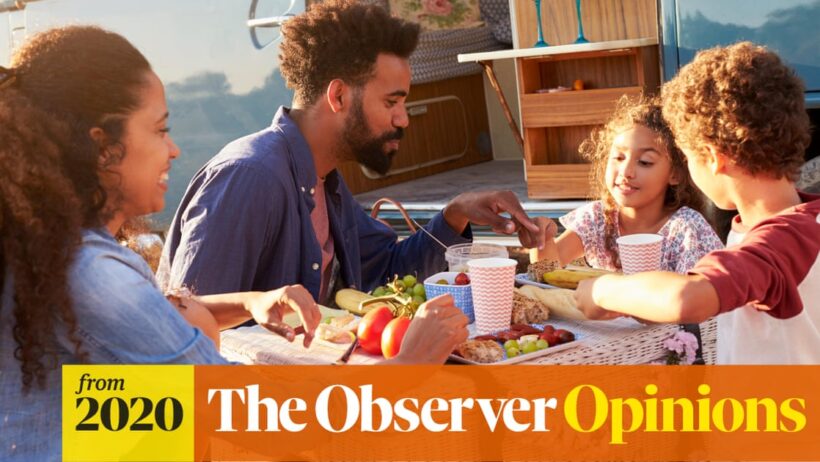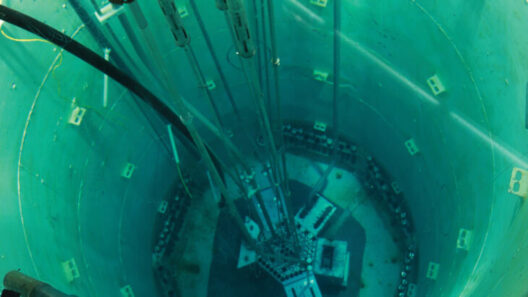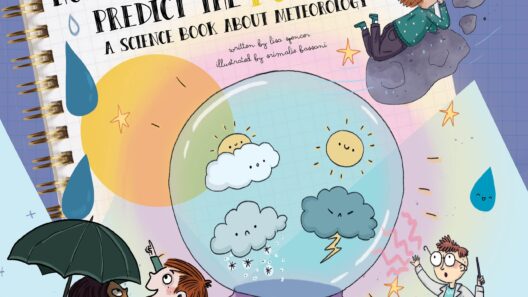The conversation surrounding family planning and environmental sustainability often conjures a vivid tableau, akin to a tightrope walker precariously balancing on a thin line between personal choice and planetary preservation. The provocative assertion that procreation contributes to global warming poses a profound question that resonates with the heart of climate activism. As the world grapples with the cataclysmic repercussions of climate change, the debate around whether to have children in an increasingly perilous environment continues to grow more controversial and impassioned.
At the crux of this debate is a stark reality: every additional human being demands resources, generates waste, and adds their carbon footprint to a planet already teetering on the brink of ecological collapse. It is this calculus—the arithmetic of consumption and its capacious appetite for the earth’s dwindling resources—that brings velocity to the conversation. For many, the notion of desiring children amplifies the ethical quandary of environmental stewardship. How do we reconcile the joy of parenthood with the obligation to protect our shared habitat?
Indeed, this is not merely a moral dilemma; it extends to existential considerations, prompting individuals to weigh the joys of parenthood against the haunting specter of an uninhabitable world. Futurists and environmentalists often evoke metaphors of inheritance, likening the planet to a fragile heirloom passed down through generations. The question echoes: What kind of legacy do we wish to leave behind? In a time when dystopian narratives pervade popular culture, the worst-case scenarios of climate change loom large—extreme weather events, rising seas, and biodiversity loss create images that linger with discomfort.
Yet, on the other side of this contentious coin is the undeniable desire for connection, continuity, and companionship that children can bring into one’s life. For many, the act of nurturing the next generation symbolizes hope and resilience. The instinct to create family serves as a testament to the human spirit’s enduring optimism, but this sentiment must be tempered with an acute awareness of the planet’s deteriorating state. As scientists delineate the paths to ecological success, alternative visions of a sustainable future emerge that include not just a reduction in the number of children but thoughtful engagement with environmental ethics.
An alternative to abstaining from parenthood is a philosophical shift toward *sustainable parenting*. This paradigm advocates for raising awareness among future generations about their role as stewards of the Earth. Education around sustainability, coupled with instilling values of conservation and responsibility in children, can equip them with the tools to combat the very crises that today’s adults face. In this respect, the next generation does not simply add to the climate problem; they might represent the forefront of necessary change.
Furthermore, the discussion on global warming and procreation surfaces nuanced dimensions of privilege and socio-economic considerations. Access to family planning resources, education, and gender equality are critical factors that bear upon reproductive choices. In a world where resources are unevenly distributed, the implications of bringing more children into already marginalized environments magnify. This reality interrogates the systems of power that dictate reproductive rights and underscores the importance of equitable access to education and healthcare as part of the climate change conversation.
The intersectionality of these topics is profound. Those advocating against having children in light of global warming are often met with criticism for overlooking the social implications of such choices. Some argue that this rhetoric may inadvertently place undue burden on the less privileged, while alleviating the affluent from accountability regarding their consumption patterns and environmental footprints. True advocacy demands nuanced discourse; it is insufficient to merely critique personal choices without considering systemic solutions that encompass wider societal inequities.
In contemporary dialogues, it becomes clear that the prospect of child-rearing in an era besieged by climate instability requires a multifaceted approach. With innovation and resilience at the community level, parents can indeed raise children who are equipped to navigate and mitigate the complexities of their environmental reality. Community engagement, advocacy for policy reforms, and personal choices aligned with ecological living can be constructive avenues for modern parenthood.
The debate is far from one-dimensional, embodying various perspectives that inform a larger narrative surrounding parenthood and the environment. Organizations focused on climate justice highlight the need for systemic change that addresses both global warming and reproductive rights, arguing for approaches that work in concert rather than in opposition. Acknowledging the profound ethical implications of these discussions invites people to engage with the complexities of climate change beyond mere numerical calculations.
As the collective consciousness continues to evolve, the narrative surrounding family size and environmental impact grows more critical. The imagery of human beings as mere consumers clashes with the idea of guardianship of the Earth, evoking a vision where flourishing ecosystems and thriving communities grow synergistically. It beckons a rethinking—a metamorphosis where being part of the problem transforms into being part of the solution.
In summary, the debate on whether to bear children in a warming world is emblematic of humanity’s broader reckoning with its role within the ecosystem. This intricate tapestry—woven from threads of hope, responsibility, privilege, and activism—represents a call to action that transcends individual choice. Through informed decisions, systemic change, and empowered generations, the future may still hold pathways toward a harmonious existence, ensuring that our legacy is not one of despair but rather a testament to our profound capacity for adaptation, resilience, and love for the planet.








